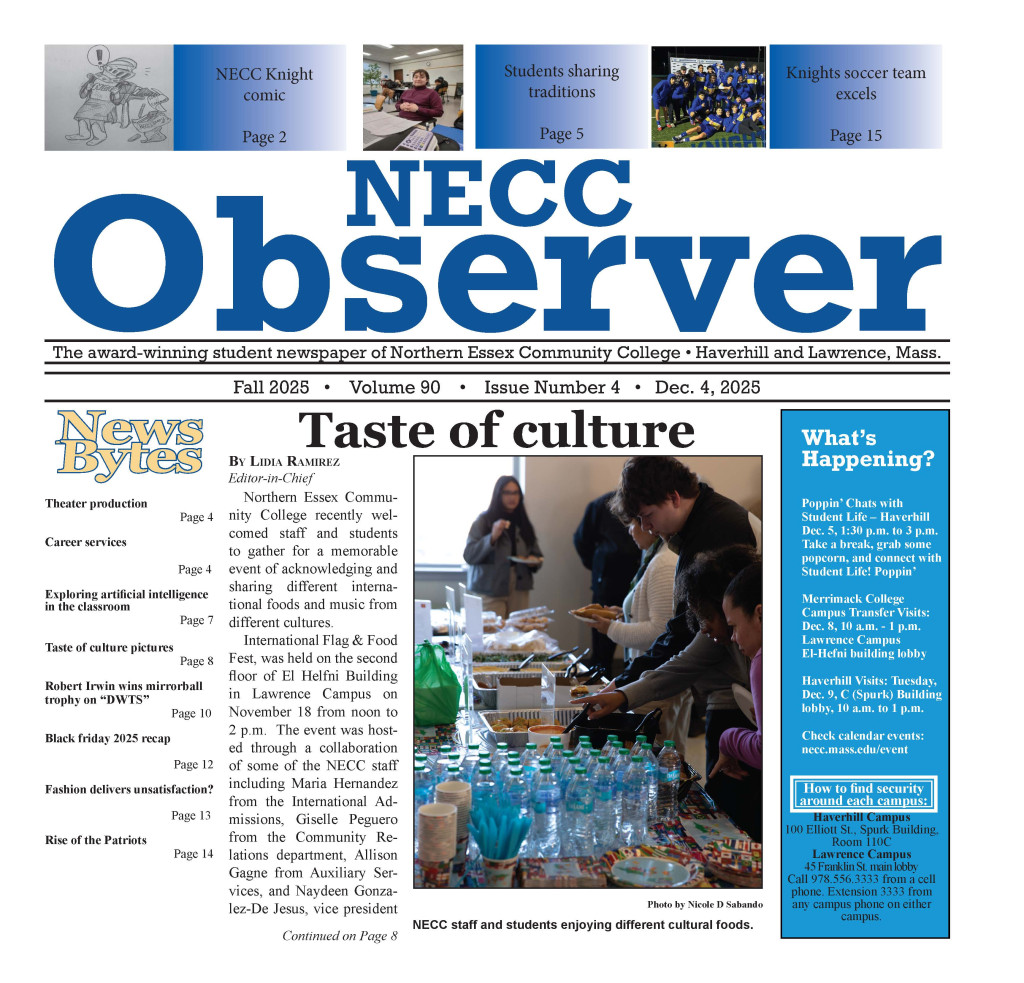A commemoration lecture in honor of Abraham Lincoln’s death was held on April 14 in the Hartleb Technology Center. The lecture was organized by Richard Padova as a part of the third installment of the 2014-2015 Speaker’s Series “Movers, Shakes and Opinion makers,” funded by NECC and the generous contributions of Bill Heineman.
Padova was the first to speak, talking about the presidential campaign of Abraham Lincoln and how voting was done during his 1864 election.
“Voting was a little different than you’re accustomed to today. Back in the 1800’s, often times the way voting was done was the political parties would print the ballots with the names of their candidates on it so the Democratic party would print a ballot with all the Democrats on it and the Republican party would print a ballot with all the Republican candidates on it that were running, and then they would distribute these to their supporters straight to the polls on election day.”
Also Partisan papers back in the 1800’s printed pages full of ballots as well, and then voters that planned on voting would cut out a ballot and bring them to their voting place on election day,” said Padova.
Padova, an avid collector of artifacts of American history, brought on display some items from Lincoln’s presidency including a ballot, a playbill from “My American Cousin”, which is the performance Lincoln was attending when he was shot by John Wilkes Booth. There was a hand bill which alerted the public in a sort of original paper tweet about the outcome of the election.
“A lot of times when people were waiting for a paper to arrive especially in rural parts of the country, handbills were printed, sort of like the equivalent to a text alert today,” said Padova. A handbill was distributed to announce the assassination of Abraham Lincoln, which had a poem written on it, and was on display along with the other artifacts for the lecture.
“On the morning of Friday April 14, 1865, the Lincolns decided they would be attending ‘Our American Cousin’ that evening, so Mary Lincoln notified John Ford, the owner of Ford’s Theatre that the first couple would be attending the performance that evening. Ford went to a local printer and had a playbill printed with the basic information about the performance, and the playbills were circulated on the streets of D.C. as a way to gather support for the performance, and it worked and there was a full house that night,” said Padova.
The assassination of Lincoln took place at 10:15 p.m. on Friday, April 14, 1865.
Next to speak was Professor Jim Murphy from the theater department, who recited a magnificent rendition of the Gettysburg Address, with the Civil War Memorial Guard standing beside him in full uniform.
The guest speaker, Dr. Heather Cox Richardson of Boston University, MIT Suffolk, UMass Amherst, Fitchburg State University and Boston College offered her time to speak about Abraham Lincoln after the recitation of the Gettysburg Address.
She defends Mary Todd from the ridicule often associated with her spending habits and public opinion during Lincoln’s presidency.
Richardson gave very interesting insights in how Lincoln operated in the White House by bringing his poor upbringing into to discussion. She emphasized how Lincoln was a true American, in that he pulled himself up ‘by the bootstraps’ and created his own successes despite many early challenged growing up in less than ideal circumstances.
“The one thing that is interesting, and I speak about this stuff a lot, is that there is this sense — and I’m not necessarily speaking about people today, but there is this sense that they’re (slave owners) deliberately advancing the field that makes them masters of the universe,” said Richardson.
She related how although the United States no longer has slavery, the less wealthy and lower middle people on the line of poverty are in a sense shackled to corporations holding a lot of money and power in the country.
After a brief discussion with the students attending the lecture, there was an open panel discussion followed by a reenactment of Act III Scene 2 of Our American Cousin, the scene playing when Lincoln was assassinated.

